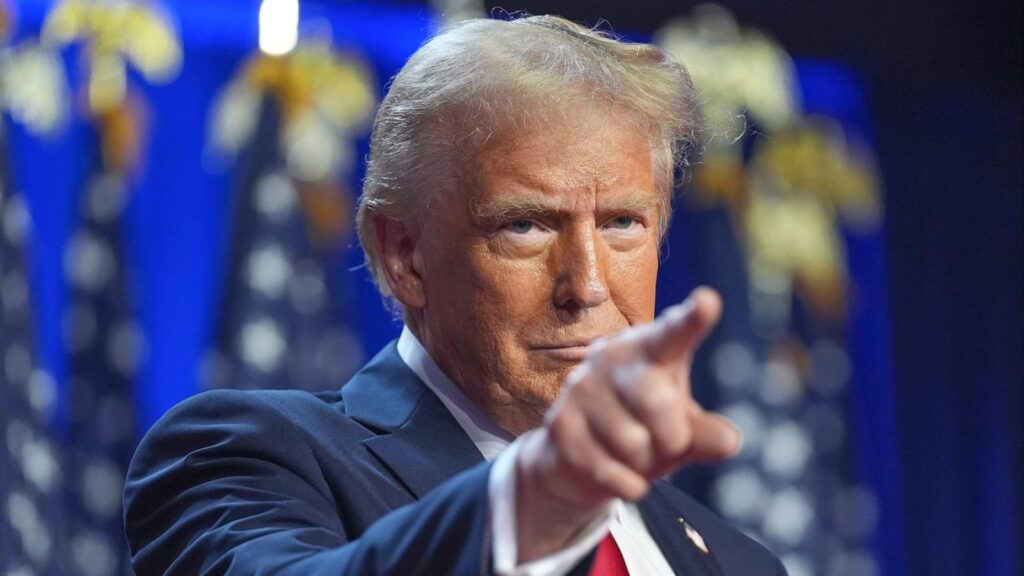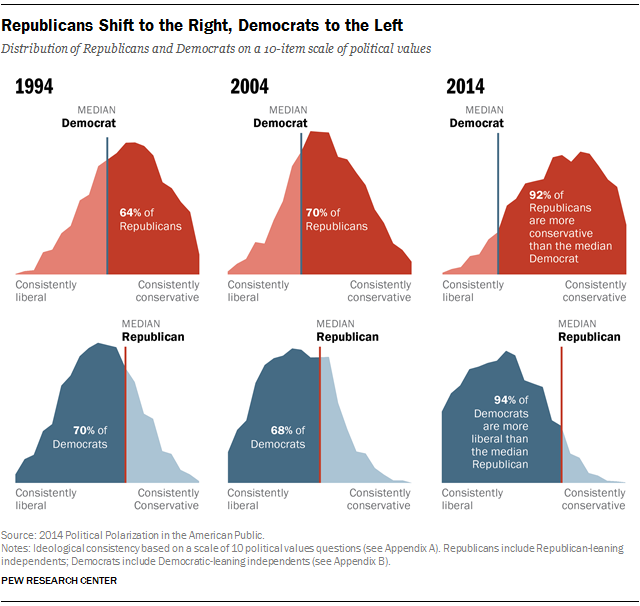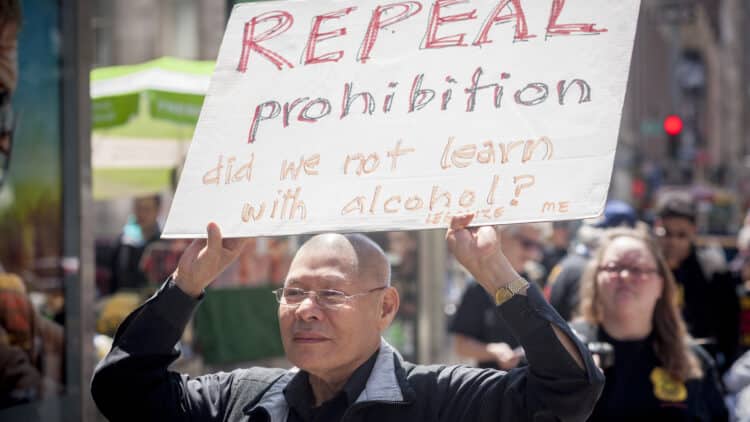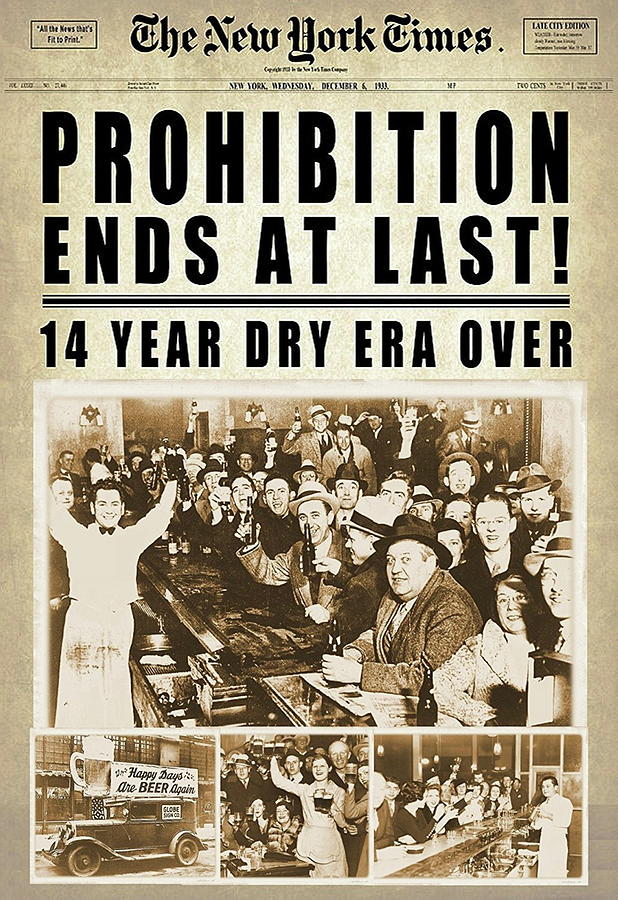Will Donald Trump Reduce or Repeal Drug Prohibition?

Former President Donald Trump recently described the double life sentence plus 40 years handed down to Ross Ulbricht, creator of the Silk Road darknet marketplace, as “excessive.” Ulbricht’s case has long been a flashpoint for debates over internet freedom, privacy, and the ethics of drug prohibition. But Trump’s comment, coming from a leader who championed “tough on crime” rhetoric, raises a provocative question: Does this signal a shift in how even staunch conservatives view the broader War on Drugs?
The Context of Ulbricht’s Sentence

Ross Ulbricht was convicted in 2015 for founding and running the Silk Road, a platform that facilitated anonymous trade of illicit goods, predominantly drugs. Prosecutors argued Ulbricht’s actions contributed to overdoses, though there was no direct evidence he sold drugs or physically harmed anyone. His sentence—two life terms without parole plus 40 years—was largely symbolic, aimed at sending a message to potential copycats.
For comparison, even individuals convicted of premeditated murder often receive sentences with parole eligibility. This disparity invites scrutiny of how harshly society punishes drug-related offenses versus crimes with undeniable victims, like murder.
Are the Tides Shifting?

Trump’s use of the word “excessive” suggests an acknowledgment of imbalance. While he didn’t explicitly call for Ulbricht’s release or broader drug policy reform, this critique of the justice system—especially regarding drug-related offenses—is significant. And if Trump makes good on his promise to commute Ross’ sentence, that would certainly signal a change. Especially since historically, Republicans have been at the forefront of punitive drug policies, from Nixon’s War on Drugs to Reagan’s mandatory minimum sentences.
However, public opinion is shifting. Polls show that a growing majority of Americans, across party lines, support the legalization of marijuana and oppose harsh sentences for nonviolent drug offenses. By labeling Ulbricht’s punishment “excessive,” Trump may be tapping into this evolving sentiment, although if this is being done for pragmatic or ideological reasons remains to be seen.
What Does This Mean for Drug Prohibition?

Ulbricht’s case is emblematic of how prohibition inflates the consequences of nonviolent crimes. The Silk Road didn’t create demand for drugs; it simply provided an alternative marketplace. Arguably, this approach was less violent than traditional street-level drug dealing, as it eliminated physical turf wars and offered users a degree of quality control. Yet Ulbricht received a harsher sentence than most violent offenders.
Trump’s comment opens the door to a broader critique: If the punishment for creating a platform that facilitates drug trade is excessive, what does that say about the system as a whole? While this question may not be easily answerable, it raises a few key points:
- Prohibition has failed to curb drug use, possession, or dealing
Drug prohibition turns a public health issue into a criminal justice problem. By outlawing substances, society doesn’t eliminate demand—it drives it underground, where violence and corruption flourish. Ulbricht’s draconian sentence is a byproduct of this flawed approach. - Disproportionate Punishments
The criminal justice system often punishes drug offenses more severely than violent crimes. This imbalance is rooted in decades of prohibition-era policies designed more to send messages than to ensure fairness or public safety. - Changing Conservative Attitudes
Conservatives have traditionally framed drug use as a moral failing. However, economic arguments for reform—such as reducing prison costs and reallocating law enforcement resources—are gaining traction on the right. Trump’s critique, intentional or not, aligns with these pragmatic concerns.
Toward a Post-Prohibition Era?

While Trump’s comment on Ulbricht is far from an endorsement of drug legalization, it’s a crack in the armor of traditional prohibitionist rhetoric. It signals that even leaders who once embraced harsh penalties may recognize the futility of punitive measures in addressing the complexities of drug use.
The next step is to translate this growing awareness into meaningful reform. Decriminalizing nonviolent drug offenses, expunging records, and prioritizing harm reduction over incarceration are pragmatic measures that align with both libertarian and conservative values of personal freedom and fiscal responsibility.
Conclusion
Trump’s acknowledgment of the excessiveness of Ulbricht’s sentence is a reminder that drug prohibition has long relied on outsized punishments to enforce its agenda. Whether his comment reflects genuine concern or political posturing, it underscores a growing discontent with the status quo. As public sentiment continues to shift, perhaps even the most unlikely voices will join the call to end a costly, destructive, and ineffective war on drugs.
Leave a Reply